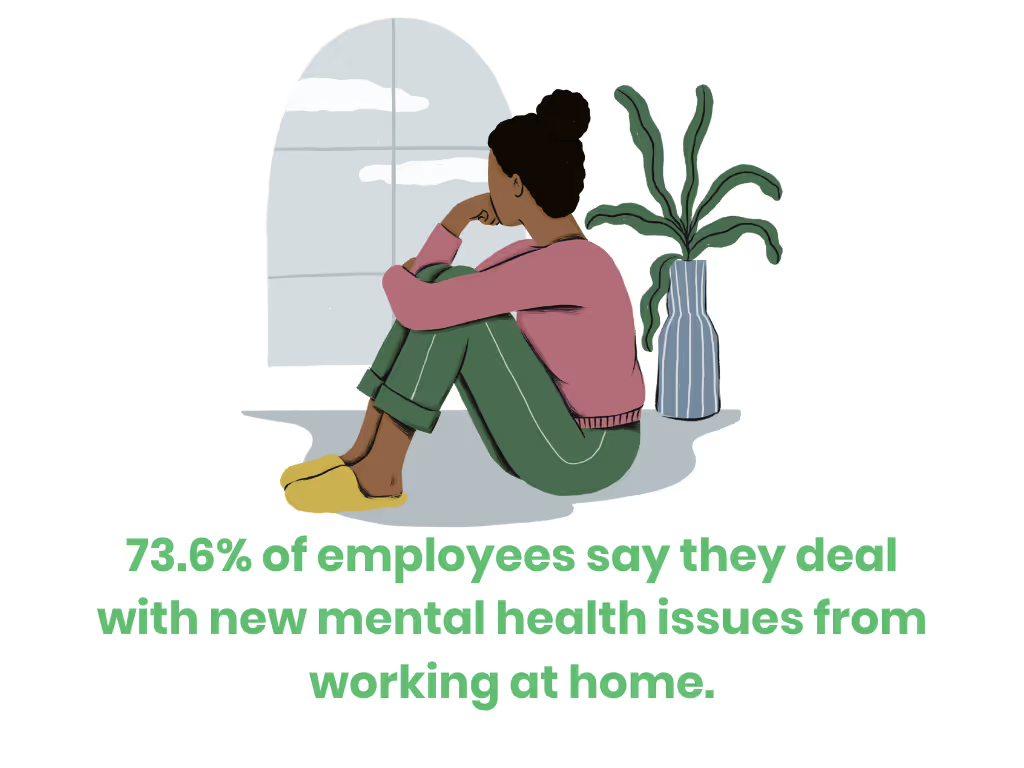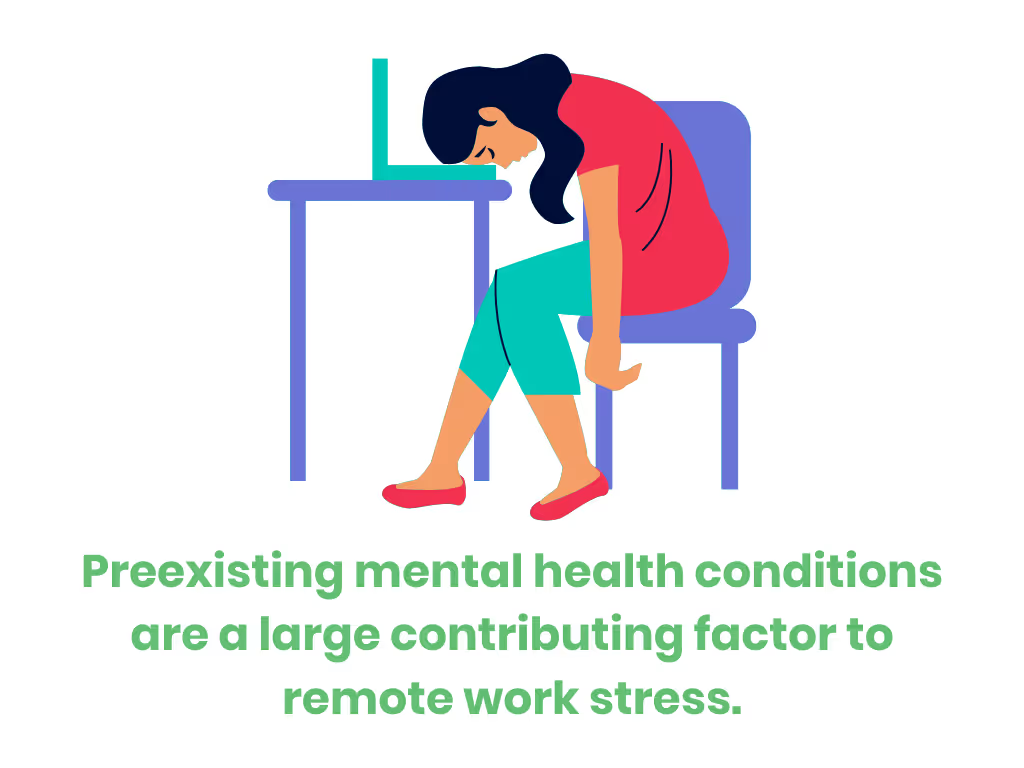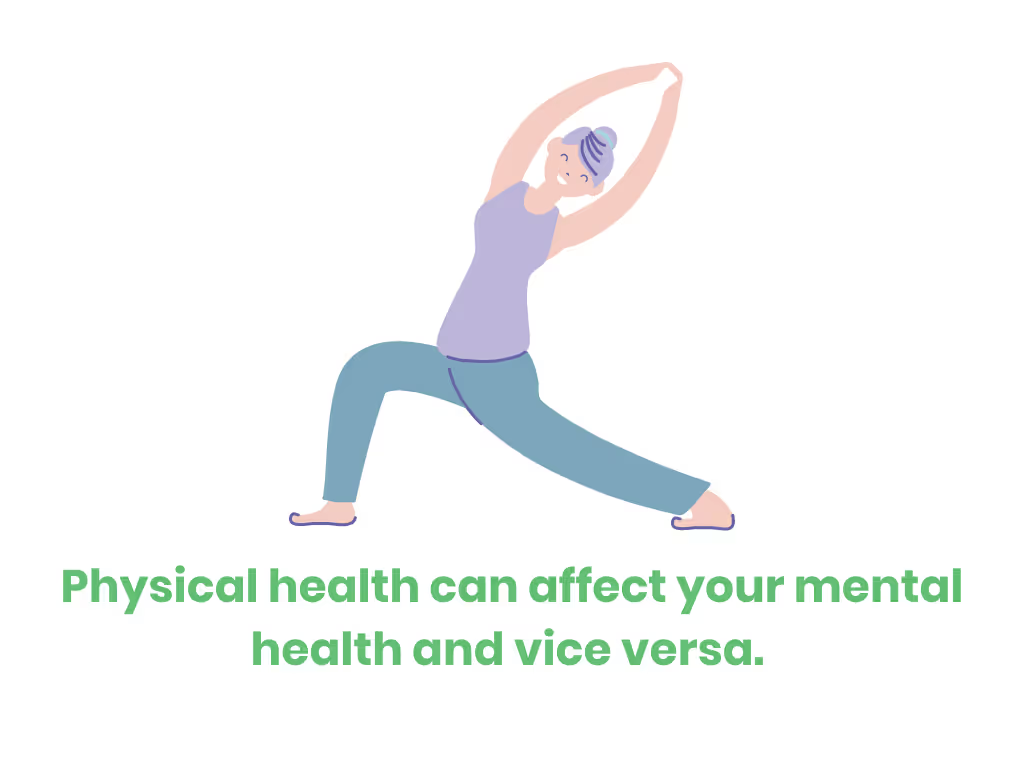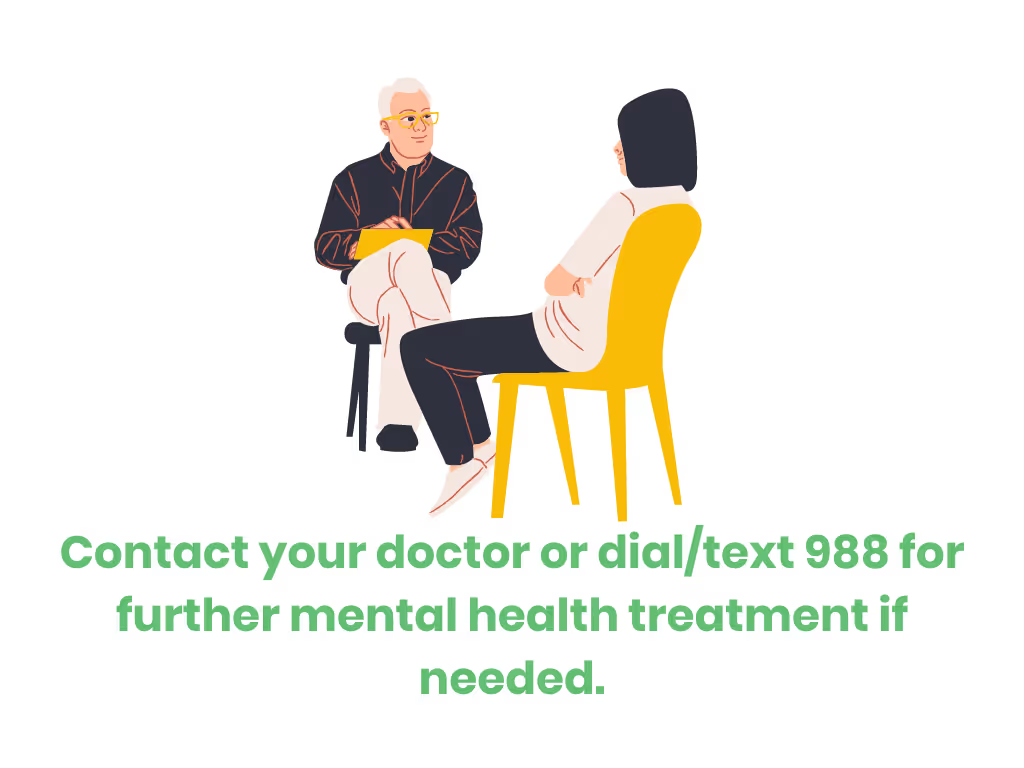How to Cope with Depression from Working at Home
Here are a few tricks and coping ideas you should know that will help you handle or even prevent negative feelings from being remote.

Workplace flexibility is one of the top factors employees consider while looking for a new job. But a study by the Journal of Occupational Environmental Medicine reports that approximately 73.6% of employees say they deal with new mental health issues while working at home.
So while for some of us have the option to work remotely is a perk, this isn’t the case for everyone. There are different opinions in the workforce about remote work and if it’s better than office culture.

Conflicting feelings on the subject have brought about different opinions, but that makes one thing clear. There’s no definitive answer when personal factors vary from person to person.
So what happens when working from home isn’t necessarily for you but you have a fully remote job?
There’s no shame in admitting you need help getting out of a rut. Whether that has to do with something you deal with already or something that has gotten worse since working from home.
No need to fear! Here are a few tricks and coping ideas you should know that will help you handle or even prevent negative feelings from being remote.
What Factors Contribute to Poor Mental Health While Working from Home?
Increased mental health problems while working from home can be anything from the number of hours working to distractions.
However, one of the largest factors that contribute to having worse mental health while working from home is preexisting mental health conditions. These could be diagnoses such as depression, anxiety, PTSD, bipolar disorder, and more.
The relationship between factors like these with an individual’s work and personal life can vary. For some, working from home may increase mental well-being. For others, though, it may cause or exacerbate mental health issues.

Let’s look at a few of the factors that can contribute to poor mental health in a work from home environment:
- Decreased physical activity.
- Existing mental health conditions.
- Poor work-life balance.
- Poor diet.
- Having a stressful home environment.
- Having more distractions at home.
- Lack of communication with coworkers.
Know The Signs
It can be hard to realize when you need to address your mental health.
Plenty of people fall complacent and just go through the motions. But if you suspect something serious might be going on, there are certain signs to look for.
If you notice the following for two weeks or longer, it’s time to address it:
- You’re sensitive to stress and are quick to anger or feel anxious.
- You avoid social interactions and tend to stay home because you just feel exhausted.
- You feel a loss of passion toward your job, hobbies, or interests.
- You have trouble concentrating.
- You’re either oversleeping or not getting enough sleep.
- Your appetite is nonexistent or you are craving food (especially sweets) more than usual.
How to Cope
So back to the point of this blog, and that is that there are steps you can take to mitigate and move forward when you’re in a rut.
Hey, it happens to the best of us.
After all, finding the balance between your personal and work life is hard to do. Add the fact that your office is now your bedroom and it may seem impossible.
Having space to take care of yourself physically and emotionally as well as the time in the day to do so is going to be your biggest ally. Here are some of the ways to achieve that.
Your Workplace Setup
Making sure you have the right workstation setup is the first step when investing in your work from home’s well-being.
Having a space that allows you to focus with little interruption and offers a boundary from your personal life is a great way to manage work-life boundaries.
What that means is when you get up to “go to work”, you aren’t simply sitting straight up in bed and getting straight to work. Taking a moment to get out of bed to move rooms separates your relaxing space from your workspace.
As it stands today, almost 80% of workers who work from home don’t have a dedicated workspace. Not good!
Make Your Health a Priority
Like I said before, making time for your physical health is key to keeping a healthy remote work environment.
Yes, I know this blog post is about mental health but the two are directly related to each other! Physical health affects your mental health and vice versa.
Take the following study that observed exercise in relation to depression. The participants who would exercise 3 times a week had lower rates of depression than those who did not after 10 months.

So, if you start to slip on getting exercise or you neglect giving yourself proper nutrition, your brain is going to be sad about it. Try making your well-being part of your job description and a daily checklist!
Keep in mind the basics such as drinking plenty of water, making sure to move around each day, and eating good nutritious meals. This might mean that you will need to make tough decisions in regard to your work schedule such as saying no to extra projects or blocking off time in your calendar to take that quick walk around the block.
Maintain a Regular Schedule
Working from home can sometimes feel like there are no hard deadlines. If you have a habit of procrastinating, you might be in a bit of trouble.
One minute you are just checking your social media and the next it’s already 4:45 pm. Where did the day go?
Now you’re stressing out and have to work late into your evening time just to get your project finished you should have done earlier. Sound familiar? The best way to combat a flimsy schedule is by creating a plan and sticking to it.
Here are a few tips for structuring your day to be more productive (and avoid the black hole that is TikTok):
- Organize Your Workspace
- As we mentioned earlier, make sure you have that designated workspace. Try to create a space where you will face minimal interruptions and can step away when a break is necessary. Here’s a pro tip from me: a seat away from your television is probably best.
- Make a Task List
- If focus isn’t necessarily your problem, it is still a good idea to make a task list for the day. Whether you need a gentle prompt to tackle your projects promptly or you need to remind yourself not to pour your entire workday into just one task, a list will help you stay focused and meet your deadlines.
- If you are a calendar person or do better physically writing things down, get one for your desk. If you prefer reminders on your phone, there are plenty of apps to help you organize your workload for free. At the end of the day, make sure to revisit your list and see what you got finished. Whatever you weren’t able to address you can add to the next day’s list and so on.
- Get Dressed
- This might be the easiest tip to introduce into your routine. Getting dressed can have very powerful psychological effects when it comes to working from home! Making this a part of your morning can help get your brain adjusted into “work mode”, just like you would do if you were going into the office. As tempting as it might be to stay in your pj’s all day, adding this to your daily routine is sure to break up the monotony and help you feel less… blah.
- Remember to Take Breaks
- No one should work 8 hours straight every day with no break. So if you tend to be someone that loses yourself in your work, don’t do that. Easier said than done I am sure but it’s detrimental to your mental health to not give yourself breaks. Allow your eyes to rest from the computer screen and your legs the chance to stretch and recharge if only for a few minutes. If you need to, set an alarm or two to remind yourself when it is time to take your break or grab lunch.
- Quit Working When the Day Is Over
- We’ve all heard the phrase “leave work at work”. Well, what happens when you work from home? I mean, your computer is right there after all. You could probably catch up on some projects after dinner just to get ahead, right? It’s not suggested.
- Setting your work hours and sticking to them can help your mind and body get into a rhythm. Make sure to let your boss and coworkers know what these hours are so they understand when you will be logging off. Avoid checking your email after work hours as well. If you change your schedule every day this can make you prone to feelings of instability and anxiety.
When to Contact a Doctor
This blog is not meant as a treatment plan, but instead offers some ideas on how to cope with feelings of depression and anxiety while working remotely. Depression is a serious mental health condition and a person should contact a doctor or mental health professional if they have been experiencing symptoms of depression regularly for at least 2 weeks.

These symptoms include (via Mayo Clinic):
- Persistent sad, anxious, or “empty” mood.
- Feelings of hopelessness.
- Feelings of irritability.
- Feelings of guilt, worthlessness, or helplessness.
- Loss of interest or pleasure in hobbies and activities.
- Decreased energy/Difficulty sleeping.
- Difficulty concentrating, remembering, or making decisions.
- Oversleeping.
- Changes in appetite.
- Thoughts of death or suicide, or suicide attempts.
Conclusion
Be nice to yourself!
This may be easier said than done, but you are far from the only one struggling with the issues that come from working at home.
As we find ourselves transitioning through seasons, investing in a few of these science-based strategies can save you from critical thoughts like “I’m not good enough,” or “I’m so lazy”. Getting stuck in this headspace can be debilitating and counterproductive.
Remember that adjusting your priorities and adopting new habits is not a sign of weakness. Instead, it shows mental strength and maturity, along with avoiding comparing yourself to what your coworkers are doing.
Trimming your overflowing to-do list or breaking down big projects into smaller steps offers quality over quantity when it comes to what you produce… and helps avoid burnout in the long run.
Emphasize your product's unique features or benefits to differentiate it from competitors
In nec dictum adipiscing pharetra enim etiam scelerisque dolor purus ipsum egestas cursus vulputate arcu egestas ut eu sed mollis consectetur mattis pharetra curabitur et maecenas in mattis fames consectetur ipsum quis risus mauris aliquam ornare nisl purus at ipsum nulla accumsan consectetur vestibulum suspendisse aliquam condimentum scelerisque lacinia pellentesque vestibulum condimentum turpis ligula pharetra dictum sapien facilisis sapien at sagittis et cursus congue.
- Pharetra curabitur et maecenas in mattis fames consectetur ipsum quis risus.
- Justo urna nisi auctor consequat consectetur dolor lectus blandit.
- Eget egestas volutpat lacinia vestibulum vitae mattis hendrerit.
- Ornare elit odio tellus orci bibendum dictum id sem congue enim amet diam.
Incorporate statistics or specific numbers to highlight the effectiveness or popularity of your offering
Convallis pellentesque ullamcorper sapien sed tristique fermentum proin amet quam tincidunt feugiat vitae neque quisque odio ut pellentesque ac mauris eget lectus. Pretium arcu turpis lacus sapien sit at eu sapien duis magna nunc nibh nam non ut nibh ultrices ultrices elementum egestas enim nisl sed cursus pellentesque sit dignissim enim euismod sit et convallis sed pelis viverra quam at nisl sit pharetra enim nisl nec vestibulum posuere in volutpat sed blandit neque risus.

Use time-sensitive language to encourage immediate action, such as "Limited Time Offer
Feugiat vitae neque quisque odio ut pellentesque ac mauris eget lectus. Pretium arcu turpis lacus sapien sit at eu sapien duis magna nunc nibh nam non ut nibh ultrices ultrices elementum egestas enim nisl sed cursus pellentesque sit dignissim enim euismod sit et convallis sed pelis viverra quam at nisl sit pharetra enim nisl nec vestibulum posuere in volutpat sed blandit neque risus.
- Pharetra curabitur et maecenas in mattis fames consectetur ipsum quis risus.
- Justo urna nisi auctor consequat consectetur dolor lectus blandit.
- Eget egestas volutpat lacinia vestibulum vitae mattis hendrerit.
- Ornare elit odio tellus orci bibendum dictum id sem congue enim amet diam.
Address customer pain points directly by showing how your product solves their problems
Feugiat vitae neque quisque odio ut pellentesque ac mauris eget lectus. Pretium arcu turpis lacus sapien sit at eu sapien duis magna nunc nibh nam non ut nibh ultrices ultrices elementum egestas enim nisl sed cursus pellentesque sit dignissim enim euismod sit et convallis sed pelis viverra quam at nisl sit pharetra enim nisl nec vestibulum posuere in volutpat sed blandit neque risus.
Vel etiam vel amet aenean eget in habitasse nunc duis tellus sem turpis risus aliquam ac volutpat tellus eu faucibus ullamcorper.
Tailor titles to your ideal customer segment using phrases like "Designed for Busy Professionals
Sed pretium id nibh id sit felis vitae volutpat volutpat adipiscing at sodales neque lectus mi phasellus commodo at elit suspendisse ornare faucibus lectus purus viverra in nec aliquet commodo et sed sed nisi tempor mi pellentesque arcu viverra pretium duis enim vulputate dignissim etiam ultrices vitae neque urna proin nibh diam turpis augue lacus.




